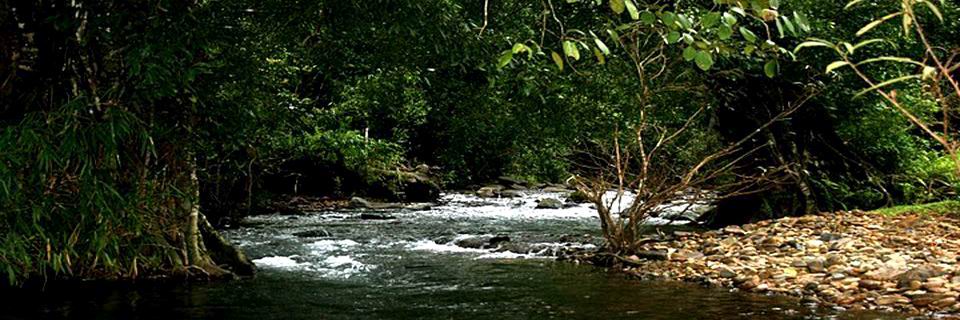| Kodava Traditions |
|
The names of Kodava people are characteristic and include a clan name. The clan is central to Kodava culture and families trace their lineage through clans. Marriage within a clan is forbidden. The family unit of the Kodavas is called the okka. It is a joint patrilineal clan with males of common ancestry. The male members of an okka share an okka name. Currently there are about 1000 okka names and families in Kodagu. Traditionally all the members of an okka lived in a large ancestral home called ain-mane (ayyangada mane House of the Elders). Usually the ain- mane has a courtyard in the front surrounded by thick mud walls and bamboo thatched roof. Out houses for additional living space were also common. Ain-mane is surrounded by large property (jamma) and by huts of laborers attached to the okka, who provide necessary services. This cluster of homes and property form the nucleus of a village called ur. A group of ur or villages is called the nad. A number of nads make a sime. Traditionally there were eight simes in Kodagu. The land belonging to the okka is cultivated jointly by the family members and cannot be partitioned or sold. The oldest member of the family is the head of the okka and is called pattedara or koravukara. It is a hierarchy that is passed on to the eldest member of the clan by right. Similarly each ur (or ooru), nad and sime has a headman called as takka. The takkas settled disputes and imparted justice after consultation with other elders. Girls and boys from one okka cannot marry within the same okka. However, cousin marriage between children of brother and sister is accepted (but not between children of two brothers or two sisters). Once married, a girl assumes the okka name of her husband. Mother is held in high esteem in Kodava society. Mother is the first one to bless a young married couple or a journeyman. Unlike Hindu society, a widow is still allowed to participate in happy occasions like marriages of her children. She is the principal figure to conduct the marriage ceremony that traditionally is conducted without a Brahmin priest. A widow is allowed to remarry and this is a common practice as it is fully accepted. |













 Kodava Traditions
Kodava Traditions


